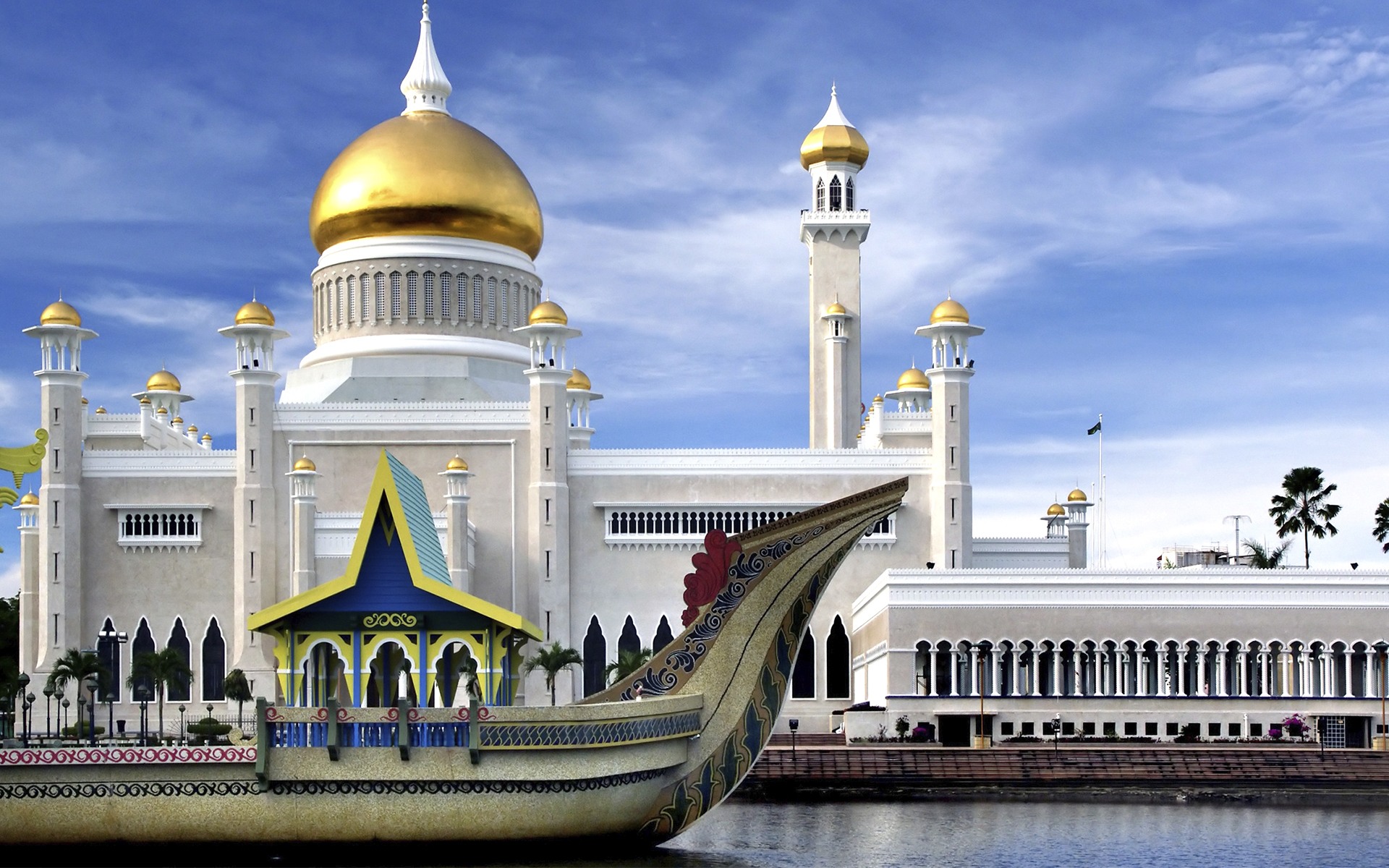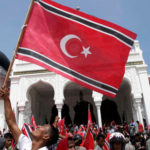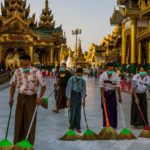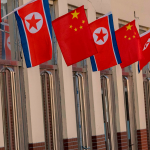Negara Brunei Darussalam (‘Nation of Brunei, Abode of Peace,’ henceforth Brunei) is a small sultanate located on the northwestern coast of the island of Borneo in Asia-Pacific region. Its population is likewise small accounting for 437,479 in 2020. Around 80% of Bruneian nationals identify themselves as Muslim, mostly Sunnis of Malay origin following the Shafi’i school of Islamic jurisprudence. However, the country represents considerable ethno-religious diversity, including indigenous groups, Chinese and Indian communities, and a large number of expatriates from Europe, Australia, New Zealand, and Southeast Asian countries.
Any national identity is based on an idea of a nation, famously defined by Anderson as “an imagined political community” with set borders. Still not fully consolidated, the nation of Brunei is experiencing ongoing identity formation. From a constructivist perspective, though a collective identity such as the one of a nation does not emerge naturally, primordial or structural commonalities, i.e. ethnicity and religion, may well provide the groundwork.
In Brunei’s context the particular emphasis in unifying the nation has been placed on Islam. The article examines the role of Islamic tradition in the construction of Bruneian national identity. First, it aims at analyzing the reasons and objectives for Islam to become a cornerstone of nation-building process; secondly, it is intended to assess how such a stance is reflected in public documents and the government’s actual policies.
Historical background
Both geographical position and the twists and turns of Brunei’s history exposed its population to diverse influences. Its dominant culture is derived from the old Malay world. The tradition of statehood on Bruneian land goes back to as early as the 7th or 8th century AD, according to Chinese records describing a trading kingdom at the mouth of the Brunei River.
The emergence of Brunei as an Islamic polity dates to 14th century when local ruler Awang Alak Betatar (reigned 1363-1402) converted to Islam and took the name Muhammad Shah. An important hub for trading system connecting the East and the West, the Sultanate of Brunei gradually extended its control over neighboring polities and turned into a prominent regional power.
After the reign of the ninth Sultan, a protracted period of crisis followed being marked by European colonial expansion. The increasing presence of the Europeans, especially the Spaniards, the Dutch, and the British, in the region brought about the decline of Brunei as a political and economic center. As a result, local leaders at the peripheries started to exercise power on their own or in collaboration with outsiders. In 1888, Brunei negotiated a protectorate status with Great Britain and became a British dependency in 1906. The British Residency period lasted until 1959, when the Constitution made Brunei a self-governing state. In 1984, Brunei gained full independence under the rule of His Majesty Haji Hassanal Bolkiah Mu’izzaddin Waddaulah, twenty-ninth Sultan of the dynasty.
Since that time, there have been ongoing efforts to Islamize the country’s historical heritage in order to articulate the continuity of Bruneian Muslim tradition.
State ideology: the ‘I’ of MIB
Political system of contemporary Brunei combines traditional elements of governance and Western conception of a nation-state. It is manifested in the country’s ideology called Melayu Islam Beraja (MIB, ‘Malay Islamic Monarchy’). Officially proclaimed as ‘national philosophy’ by the current Sultan on the day of Brunei’s independence, MIB does not just provide the guiding principles for administrative policy, but lays the foundations for Bruneian identity. As clear from the designation, the ideology invokes Islamic values to strengthen Brunei’s absolute monarchy, albeit formally constitutional. In the 1959 Bruneian Constitution, Article 3.1, Islam is declared as the official religion of the state, though the same clause promises that all the other religions “may be practised in peace and harmony.” Pursuant to the 2nd and 4th clauses of this Article, the Sultan is the Head of the Islamic faith in Brunei with power on all Islamic matters. He is supposed to be entrusted by Allah to exercise supreme authority over the nation.
The paramount advantage of any religiously-derived legitimization is its divine origin and formulation in a realm beyond the human capacity. Since MIB incorporates Islam, contesting it would deem heretical. It is for that reason that the ideology is commonly referred to as “a gift from Allah the Almighty,” “God’s will,” and “the basis of the Brunei Sultanate from time immemorial,” with the only innovation being its official articulation.
Since the ruling elites view their governance as primarily resting on Islamic credentials, Islam is attributed the function of “the pillar and the axis of the state philosophy” and “the cornerstone of modern Brunei.”
For a quarter of a century, Islamic studies, along with “national philosophy,” have been embedded into the state education system. MIB and the Islamic Religious Knowledge are integrated into the school curriculum as core compulsory subjects at both primary and secondary levels for all pupils, regardless of whether they are Muslims or non-Muslims.
Ethnic diversity and/or the nation
The relationship between the ‘M’ and ‘I’ components of Brunei’s ideology is also peculiar in the context of nation-building. Melayu Islam Beraja de facto reduces Bruneian culture to the aspects directly related to that of Brunei Malay majority bearing an inextricable link between Islam, Malay cultural values, and supra-ethnic national identity. The system is intended to ensure social equality for anyone who shares these characteristics. Accordingly, MIB considers loyal non-Muslims and non-Malays “protected minorities,” but excludes them from desirable national identity.
Being Malay in present-day Brunei is correlated with being Muslim, and vice versa, to such an extent that a person adhering to the Islamic faith in the country is said to masuk melayu, meaning ‘enter into Malayness.’ Consequent to the indivisibility of the Malay-Muslim equation, non-Muslim indigenous groups are brought in the anomalous position as they lack the usual defining characteristic of Bruneian Malayness.
The main purpose of Pusat Dakwah Islamiah, the Islamic Propagation Centre, established in 1985, was to “resolve this anomaly by converting non-Muslim indigenous ethnic groups.” Active strategies have been developed by officials to enhance cultural convergence and incorporate non-Muslim subgroups into the dominant society. Large-scale ceremonies of conversion were and are performed via the efforts of a designated department and reported regularly in the media. Embracing Islam is now viewed as a prerequisite for sharing national identiy and getting access to upward social mobility, e.g. better employment outcomes, the right to hold official positions, social and monetary benefits, etc.
The nationalization of Malay Islamic culture has left little cultural space for other ethnic groups, especially those that are not Muslim. The construction of a unified Bruneian identity is therefore taking place at the expense of traditional ethno-religious identities. According to some estimates, within the next decades the government’s efforts will result in the assimilation of most, if not all, Brunei’s minority ethnic groups.
Towards Islamization?
Being the only ASEAN country that unambiguously defines itself as a non-secular Islamic state, Brunei places Islamic values and institutions at the centre of national interest. The nation’s religious piety is epitomized in the motto of the Sultanate, “Always in service with Allah’s guidance,” also featured on the country’s flag and emblem. A member of international Islamic organizations, Brunei declares its firm commitment to the version of Islamic belief and practice that has long been established in the country.
As we review current socio-political trends with respect to Islam, we need to remind ourselves that the paramount symbol of Islam in Brunei is its monarch. It has become an axiom that the religion of a ruler dictates the religious choice of his people. Thus, Islam was absorbed into the customs and codes of behavior and simultaneously shaped them. The degree to which Islamic values are intrinsic to Bruneian public life explains why the Sultanate has never experienced the rivalry between the reformers and the conservatives.
Since the 1930s, Brunei’s authorities have used rising oil revenues to promote Islam, including subsidizing the Hajj, building mosques, revising Islamic education, sending students abroad for further religious study, and expanding the Department of Religious Affairs. Yet past reforms were more institutional rather than distinctly ideological. The process of Islamization occurring since the country gained its independence has an unprecedented pace.
First and foremost, numerous changes were made in Brunei’s legal system to bring existing laws in line with Islamic teaching. These include the prohibition of production, sales, and public consumption of alcohol, ban on nightclubs and dance halls. The 1990s witnessed increasing investment in Muslim economics and banking, education, and the media coverage. Brunei’s didactic news media serving to promulgate the government’s policies pay special attention to the issues of religion. Any non-Sunni and non-Islamic religious materials being distributed came to be regarded as subject to confiscation. Christmas and Chinese New Year, despite both being national holidays, are illegal to be celebrated publicly. To date, 7 out of 10 official public holidays in Brunei have Islamic connotation. The Birthday of Prophet Muhammad, also known as Mawlid, is being celebrated on a national scale. The festivity begins with a royal address and a solemn procession through the streets of Bandar Seri Begawan, the country’s capital city.
In 2008, the Negara Zikir (‘Nation Devoted to God’) concept was announced by His Majesty. As emphasized by the Bruneian authorities, “Negara Zikir is a nation with a God, a nation whose people and citizens always remember God.” Notably, it is stressed that “God is Allah subhanahu wa ta’ala, not God according to the understanding of other religions.” In practice it means a country that conscientiously keeps Islamic values close to the heart when carrying out daily actions.
The government’s aspiration to make Islam a way of life for the entire nation has pushed Brunei towards an ever stricter observance of Islamic precepts. The process broke new ground in 2013-14 when Brunei became a Sharia country with the implementation of the Sharia Penal Code Order. Sharia-based laws were previously applied only in matters of personal status, such as marriage, divorce, child custody, and inheritance. The legal reform brought sanctioned by Islamic precepts yet highly controversial punishments for certain crimes, namely amputation for robbery, stoning for homosexual intercourse and intercourse outside of marriage, execution for blasphemy, e.g. insulting Prophet Muhammad, Islamic practices, or the State Mufti’s fatwas. Not attending Friday prayers was also considered a criminal offense. Although a number of these offenses were forbidden before the legal reform, the penalties have been drastically increased, and additional provisions have been added.
The missing element in the legislation was a criminal procedure code. This gap was filled with the Sharia Courts Criminal Procedure Code Order, passed in March 2018 and enforced since early 2019. Of considerable significance here is the fact that the new laws apply to all residents of Brunei irrespective of their religious affiliation. Though never publicly debated, the decision has triggered both alarm among non-Muslim communities of the country and widespread international criticism. As a response, the Ministry of Religious Affairs characterized the new laws as “not man-made, but ordained by Allah” while global condemnation was interpreted as a “misunderstanding.” In the view of its ardent advocates, Sharia is not new to Brunei; the Sultanate had been governed under Islamic laws since the 17th century, and it is the intervention of foreign powers what made the country to abandon this practice. The Sultan also pointed out that the absence of Sharia-based criminal legislation inevitably leads to chaos in the society, as many acts regarded as crimes under the tenets of Islam go unpunished.
Thus, historical consciousness, domestic political imperatives, and general disillusionment with Western civilization could and should be regarded as major drivers of religionized politics the Bruneian officials are currently striving for.
Conclusion
Islam has always played a pivotal role in socio-political landscape of Brunei. Malay culture is marked by deep ties to Islamic tradition. It serves as a source of legitimacy and authority for the country’s absolute ruler and contributes to maintaining loyalty both to the system of governance and the hierarchical structure of Bruneian society.
Brunei’s reliance on Islam has asserted itself in multiple ways, resulting, most notably, in its institutionalization as the state religion and primacy within the framework of Melayu Islam Beraja. Asserting a triad of politically desirable aspects, the MIB concept portrays Islamic faith as the core component of national values. Interpreted in this way, Islam and its further promotion by the House of Bolkiah along with the country’s religious bodies determine the synthesis of Bruneian national identity.
Still, it is noteworthy that in making different uses of Islam, the ruling elites have proved to be very pragmatic, adapting stances to the political circumstances at hand. In this context, it is pertinent to reiterate that growing inclusion of Islam in social policies may have a long-term effect on the Bruneian identity in that it has alienated non-Muslims and moderate Muslims. Though Islam is to remain at the heart of Brunei’s nation under any scenario, the question whether the Sultanate will appear to be a devout yet inclusive country or turn into fundamentalist theocratic state, where religion becomes the rule of thought, remains debatable.
References
- Brunei Darussalam’s Constitution of 1959 with Amendments through 2006. The Comparative Constitutions Project. Retrieved from https://www.constituteproject.org/constitution/Brunei_2006.pdf?lang=en
- Anderson, B. (1983). Imagined Communities. Reflections on the Origin and Spread of Nationalism. London: Verso.
- Black, A. (2020, April 24). Brunei’s stoning for ‘gay-sex’ law flies under the radar. East Asia Forum. Retrieved from https://www.eastasiaforum.org/2020/04/24/bruneis-stoning-for-gay-sex-law-flies-under-the-radar
- Fanselow, F. (2014). The Anthropology of the State and the State of Anthropology in Brunei. Journal of Southeast Asian Studies, 45(1), pp. 90-112.
- Hj Besar, N., Long, A. S., Badaruddin, F., Ab Rahman, Z., & Kamarzaman, M. H. (2018). Element of the Negara Zikir (Nation Devoted To God) Among Staff of the Ministry of Religious Affairs in Ugama Brunei Darussalam. International Journal of Civil Engineering and Technology, 9(7), pp. 1987-1994.
- Mansurnoor, I. A. (1996). Socio-religious changes in Brunei after the Pacific war. Islamic Studies, 35(1), pp. 45-70.
- Mansurnoor, I. A. (2008). Islam in Brunei Darussalam: Negotiating Islamic Revivalism and Religious Radicalism. Islamic Studies, 47(1), pp. 65-97.
- Melayong, M. H. (2017, January 25). MIB Living Foundation Of Every Bruneian. Tertinggi Melayu Islam Beraja. Retrieved from https://mtmib.moe.gov.bn/mib-living-foundation-of-every-bruneian
- Melayong, M. H. (2019, October 7). Malay Islamic Monarchy: Brunei’s tradition. Borneo Bulletin Online. Retrieved from https://borneobulletin.com.bn/malay-islamic-monarchy-bruneis-tradition
- Müller, D. M. (2016). Paradoxical Normativities in Brunei Darussalam and Malaysia: Islamic Law and the ASEAN Human Rights Declaration. Asian Survey, 56(3), pp. 415-441.
- Ooi, K. G. (Ed.). (2004). Southeast Asia: A Historical Encyclopedia, From Angkor Wat to East Timor. Santa Barbara: ABC-CLIO.
- Saxena, M. (2007). Multilingual and multicultural identities in Brunei Darussalam. In Tsui, A. B. M., & Tollefson, J. (Eds.). Language Policy, Culture and Identity in Asian Contexts, pp. 143-162. Mahwah: Lawrence Erlbaum.
- Sercombe, P. (2014). Brunei Darussalam: Issues of Language, Identity and Education. In Sercombe, P. G., & Tupas, R. (Eds.). Language, education and nation-building: assimilation and shift in Southeast Asia, pp. 22-44. London: Palgrave Macmillan.
- Steiner, K. (2019, October 23). The state of Islam in Brunei. East Asia Forum. Retrieved from https://www.eastasiaforum.org/2019/10/23/the-state-of-islam-in-brunei
- Talib, N. S. (2002). A Resilient Monarchy: The Sultanate of Brunei and Regime Legitimacy in an Era of Democratic Nation-states. New Zealand Journal of Asian Studies, 4(2), pp. 134-147.
Фото: Sultan Omar Ali Saifuddin Mosque in Bandar Seri Begawan, capital city of Brunei. Bernard Spragg / Flickr





